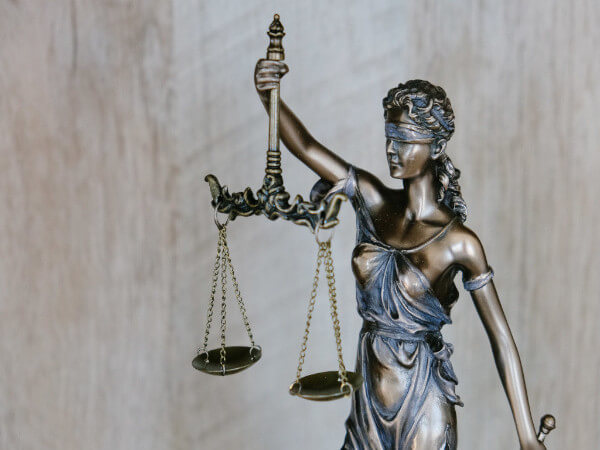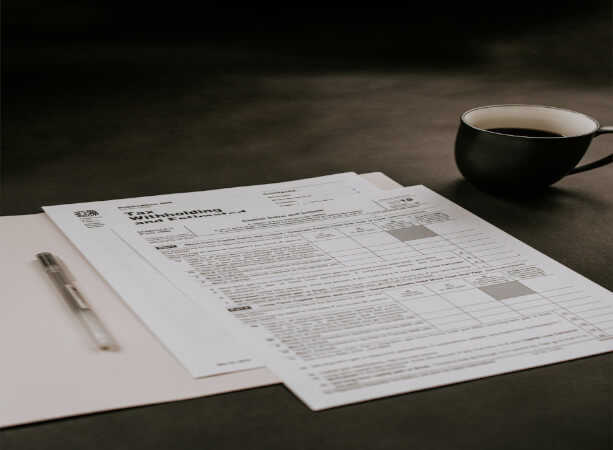Month: November 2021
Amendment of Pleadings | Order VI Rule 17 [CPC]: A Critical Analysis
Maitreyi Choalla, a student of Gujarat National Law University explains the nuances of Amendment of Pleadings under Order VI, Rule 17 of Civil Procedure Code, 1908 bstract In most cases, a country’s judicial system is designed to uphold the rule of law. Considering this principle, parties in a civil suit enjoyed unrestricted access to modify their pleadings under Order VI Rule 17 of the Indian Civil Procedure Code, 1908. Concerns were brought to the Courts that such modifications or amendment of pleadings harmed the opposite party as well as slowed down the process of civil proceedings, resulting in piling up of cases. As a result, the Code of Civil Procedure (Amendment) Act, 1999 had removed this clause, However, this move witnessed a negative reaction by both law professionals and general populace. Therefore, the Code of Civil Procedure (Amendment) Act, 2002 had reinstated the same, albeit with a caveat. This study aims to explore these changes and assess the scope and judicial interpretation of amendment of pleadings in Civil procedure with a doctrinal legal research method by using primary sources like cases, statutes, legal commentary and reports. Keywords- Amendment of Pleadings, Civil Procedure Code 1908 Introduction The principle followed in Civil Procedural Law is that the Court procedures and rules are designed to achieve substantial justice. Order VI Rule 17 is an example of such procedural law that is designed to serve justice to the parties by giving them a chance to amend their pleadings where it appears to be necessary. The word ‘pleading’ in ‘amendment of pleadings’ can be understood by Order VI Rule 1 of the Civil Procedure Code(CPC), 1908. It defines a Pleading broadly `as a plaint or a written statement.[1] While a Plaint is a formal statement filed by a Plaintiff to substantiate his claim, similarly a
Read MoreEmployee who conceals facts, makes false declarations, not entitled continue service as a matter of right- SC
The Apex Court, while allowing the appeal, made an observation that an employee who made false declarations or suppressed material facts, like his involvement in a criminal case, should not be entitled to continue in service or be appointed as a matter of right. In the instant case, the employee had been employed by the Rajasthan Rajya Vidyut Prasaran Nigam Limited. At the time of employment, he had submitted a declaration during document verification wherein he admitted that neither any criminal case had been pending against him, nor had he been convicted by any court of law in a criminal case. Later, upon scrutiny, it had been found that he had been convicted in a criminal case and consequently had been terminated. Aggrieved by the termination order, the employee approached the High Court and challenged the order. The High Court relied upon the verdict given in the Avtar Singh Case [(2016) 8 SCC 471], quashed the termination order, and directed the reinstatement of employee along with consequential benefits. Thereafter, the employer approached the apex court where the employee-respondent contended that he had been extended the benefit provided under Section 12 of the Act, 1958 wherein a person is immune from disqualification owing to his conviction. The bench rejected the contention on the ground that the immunity could not be enjoyed in cases of false declaration which had been made by the employee-respondent. The bench further explained that even in case of acquittal, the person could not claim an appointment, as a matter of right, which he lost due to false declaration or concealment of facts. Moreover, it had been observed that the issue did not involve question of employee’s involvement in a dispute or whether he had been acquitted, rather, it revolves around the creditworthiness/credibility of employee. The employee by
Read MoreDelhi HC issues notice in a plea seeking action against Google Pay’s acts contravening Article 21
The Delhi High Court, while hearing a Public Interest Litigation, issued notice against Google Pay as it had been alleged that its acts amounted to unauthorized access and storage of users Aadhar details. In the PIL, the petitioner alleged that Google Pay, which acts like a united payment interface for all the banks, violates most vulnerable right of individuals’ safeguarded under Article 21 of the Constitution of India. Further, the petitioner alleged that the unauthorized access and storage by the application also violated Aadhar Act 2016, Banking Regulations Act 1949, and the Payments and Settlement Systems Act 2007. The petitioner, through his counsel, contended that the payment interface has not been registered or received license under the Payments and Settlement Act, 2007 in order to legally conduct business of payments and transactions. Moreover, information received from Reserve Bank of India stated that Google Pay had not attained the status of a registered bank, financial institution, or co-operative bank under the Act of 1949. It also had been submitted that the business activities of Google Pay had been operating in contravention of banking as well as payment laws. Even in the terms and conditions of the application, the petitioner pointed out that the company mentioned to store the payment instruction details of users. However, the UIDAI did not receive any application from Google Pay to allow it to access, store, or use users Aadhar details. The authority did not even receive any intimation from RBI regarding the permission to access the bank details of users, submitted petitioner. For the aforesaid issue, the Delhi High Court has issued notices and listed the matter for the month of November, 2021. The post Delhi HC issues notice in a plea seeking action against Google Pay’s acts contravening Article 21 appeared first on LexForti Legal
Read MoreAG grants consent to initiate criminal contempt proceedings against Ajeet Bharti
The Attorney General for India, KK Venugopal, through a letter granted sanction to initiate criminal contempt proceedings against Ajeet Bharti, for the derogatory words used against the Supreme Court and its esteem judges, in a YouTube video which released on June 24, 2021. He further used the terms “scurrilous”, “vituperative”, and “highly derogatory” to remark the contents of the video. The video, which intended to denigrate the reputation of judiciary and raised allegations of abuse of power, bribery and favoritism, had been viewed by almost 1.7 lakh persons. The consent had been granted in furtherance of a letter written to the Attorney General to sought for his consent to initiate criminal contempt proceedings under Section 15 of Contempt of Courts Act, 1971 r/w Rule 3(c) of the Rules to Regulate Proceedings for Contempt of the Supreme Court, 1975. The Attorney General expressed its concern towards the image of Indian judiciary and stated that regardless of individual’s motive, he had been educated enough to know the consequences of his actions. The statements and remarks so made were sufficient enough to lower the image of judiciary in the eyes of general public. Throughout the video, previously settled precedents by the Supreme Court had been mocked at, stating that many of the high-profile cases had been shut down at the instance of other authorities and the judges were referred to as “sinners.” The post AG grants consent to initiate criminal contempt proceedings against Ajeet Bharti appeared first on LexForti Legal News & Journal. Randy Reidwww.itcse.org
Read MoreRepeated cases and complaints against spouse can amount to “cruelty”- SC
The Apex Court, while hearing a review petition, observed that in case repeated cases and complaints are being filed against a spouse, the same can amount to “cruelty” for the purpose of seeking divorce under the Hindu Marriage Act. The bench further referred to such conducts and observed that even though repeated filing of cases occurred after the divorce petition, the husband would be eligible to seek divorce on ground of irretrievable marriage and cruelty. In the instant case, the wife left the company of her husband on the first day of marriage. Upon her refusal to stay with her husband, the latter filed for a divorce on the ground of cruelty. The trial court allowed the divorce petition, and later, the same had been restored by the High Court. Subsequently, the wife preferred a review petition questioning the jurisdiction of High Court to allow the decree of divorce, and the same had been allowed. The bench noted that after the filing of divorce petition, the respondent-wife had resorted to filing multiple cases in courts, including disciplinary proceedings against her husband who worked as an Assistant Professor, made representation before his college to initiate disciplinary proceedings, sought information about her husband’s remarriage, abused the process of RTI. Moreover, the respondent-wife lodged a criminal complaint under Section 494 of Indian Penal Code. The bench observed that such continued acts displayed disintegration of marital unity and parties’ marriage. Further, it stated that continuous allegations and litigative proceedings amounted to cruelty. The bench placed reliance on a number of precedents and explained legislature’s reluctance in introducing irretrievable breakdown as a ground for divorce. It further observed that families are arranged on the idea of mutual expectation of support, respect and amity, which had been missing in the instant case. The Supreme Court therefore,
Read MoreFalse promise of re-employment does not come within the ambit of “free consent” for sexual act- MP HC
The Madhya Pradesh High Court, while refusing to quash the FIR, held that acquiring consent of prosecutrix for sexual act, under the garb of false promise of re-employment, does not constitute “free consent” rather, amounts to consent obtained under misconception of fact. The single-judge bench refused to quash the FIR filed by the receptionist against the Director of a hospital. In the instant case, the victim alleged that she had received an appointment letter for the post of receptionist in a hospital by the director/accused of the hospital. According to the victim, the accused had violated her sexually on multiple occasions. The prosecutrix further alleged that the accused sexually violated her on the pretext of giving her the job. The accused had also pressurized the prosecutrix to indulge in sexual activities with other persons as well. The prosecutrix disagreed for the same, and her services were terminated. Later, on the pretext of reinstatement, the applicant/accused had again sexually violated her but did not give her the job. Consequently, she lodged an FIR against the applicant/accused under Sections 294, 323, 376(2)(n), and 506 of Indian Penal Code, and under various provisions provided under Section 3 of Scheduled Castes and Scheduled Tribes (Prevention of Atrocities) Act. The bench reasoned its stand by stating that victim was an employee of applicant and applicant being the employer, had been in a position to dominate her wishes. Furthermore, it observed that the consent, at the time of re-employment, had been acquired in light of misconception of fact (that she would be given the reinstatement) under Section 90 of IPC. The bench therefore, ruled out all submissions of applicant and concluded that it failed to make out a case for quashing of an FIR. The post False promise of re-employment does not come within the ambit
Read MoreMadras HC reprimanded usage of public funds in displaying photos of CMs on school textbooks and bags
The Madras High Court, while hearing a Public Interest Litigation, condemned the act of printing photographs of Chief Ministers and other public authorities, for their personal interest, on the school-going children’s textbooks and bags. The division bench further termed such practice as “abhorring” and observed that textbooks and bags are meant for school-going children who do not even have a right to vote. It directed the State to discontinue the aforesaid practice with immediate effect. In the instant case, PIL had been filed and sought for directions to ensure that unused stocks of school textbooks, stationery, and bags should not carry photographs of Chief Ministers on the ground the adequate amount of money is expended for the said purpose. The State defended its stance by relying on a statement which had been issued by current Chief Minister MK Stalin wherein he stipulated that government would use school bags, stationery and textbooks until all are exhausted in order to prevent their wastage. The bench noted the statement issued by current Chief Minister in the State Assembly and disposed of the petition. However, it directed the State to undertake extreme care and precaution while using public funds and that the same ought not to be used for publicity purposes. It further directed the State that the photographs of Chief Ministers be restricted to newspapers and some hoardings. The post Madras HC reprimanded usage of public funds in displaying photos of CMs on school textbooks and bags appeared first on LexForti Legal News & Journal. Did you miss our previous article… https://www.itcse.org/?p=349 Randy Reidwww.itcse.org
Read MoreSC on COVID-19 casualties and difficulties faced by the family members
The Apex Court expressed its concern regarding the difficulties which the family members of deceased COVID-19 patients have to face while obtaining the required medical certificates. The bench further referred to an instance from the second wave and remarked that back then the hospitals were in a hurry to dispose of the bodies without providing any certificates and were behaving like monarchs. The bench expressed its concerns with the Central Government while hearing an application which sought for compliance of directions which had been issued by the instant court in the month of June. In the respective order, the apex court had issued directions regarding compensation for COVID-19 deaths and for simplifying the procedure laid down for the collection of death certificates, in COVID cases. In response to this, the Solicitor General had submitted an affidavit on behalf of the Union, wherein it stated that those COVID-19 cases which had not been resolved and the patient had passed away either under hospital settings or at home, and a MCCD had issued to the registering authority in a specific format, would be considered as a death due to COVID-19. The particulars regarding the Medical Certificate of Cause of Death (MCCD) had been mentioned under Section 10 of Registration of Birth and Death, 1969. The Solicitor General clarified the stand of the Union and submitted that the Centre has taken measures in order to extend benefits to maximum possible citizens who’ve lost their family members due to the COVID-19. The post SC on COVID-19 casualties and difficulties faced by the family members appeared first on LexForti Legal News & Journal. Did you miss our previous article… https://www.itcse.org/?p=346 Randy Reidwww.itcse.org
Read MoreMinority no ground to deny permission for organ donation- Delhi HC
The Delhi High Court, with respect to an organ donation case, made an oral observation that a person could not be declared as “ineligible” for donating organs merely on the ground that he/she is a minor. In the instant case, the petitioner filed a petition to challenge the order of Deputy Head of Operations, Institute of Liver & Biliary Sciences (ILBS) that denied permission to 17-year-old petitioner from donating a part of his liver on account of him being a minor. The counsel on behalf of petitioner averred that the other two eligible individuals, petitioner’s mother and elder mother, had been denied permission on ground of medical reasons. Based on this reason, the petitioner sought for appropriate directions from Delhi Government and ILBS but the same had been denied. The bench referred to governing provision under Transplantation of Human Organs & Tissues Rules, 2014, Rule 5(3)(g) which does not authorize transplantation of living tissues and organs by a minor except under exceptional medical grounds. Relying on the above provision, the bench observed that in the instant case, exceptional medical grounds had been present and yet the authorities had passed an unreasoned order. The bench further remarked that the act of authorities has not been in furtherance of saving a life. It suggested that the application could’ve been rejected if the eligibility had not been met, but outright bar, which is not even mentioned in the statute, could not be imposed on petitioner. Subsequently, the counsel on behalf of respondent pointed out the importance of minor’s life and pleaded before the bench to let the competent authority take a call after ascertaining that the donation would not cause any harm to the minor. The bench has adjourned the matter and directed the respondent to obtain instructions for the purpose of further
Read MoreCase analysis: Defending the COVISHEILD Trademark
Background Following the Classic Trinity Test, Serum Institute of India successfully defends the trademark “COVISHIELD” for its own Covid-19 vaccine in a passing-off action brought by a Nanded-based patented firm. The Bombay High Court’s recent decision denouncing Cutis Biotech’s petition to prevent SII from ever using trademark ‘Covishield’; for its vaccine has laid the groundwork for the reduction of vexatious lawsuits. The Hon’ble Court, through discarding Cutis Biotech’s appeal; stated that ‘Covishield’ is a widely known Coronavirus vaccine. The State’s Vaccine Administration Program will be confused and disrupted; if a temporary restraining order directing SII to stop using the mark “Covishield”. In this case, an injunction would have far-reaching consequences that would extend further than the parties to the lawsuit. Procedural History Before the District Judge : Nanded Around December 2020, a Nanded-based patented firm, through its sole proprietor Mrs Archana Ashish Kabra, filed a lawsuit toward Serum Institute of India (herein referred to as SII) and Anr. (one, Mr. Bhandaru Srinivas), desiring an order of injunctive relief prohibiting SII from using the trademarks ‘Covishield’ and/or ‘Covid shield’ for their COVID-19 vaccine. Cutis Biotech asserted that they had adhered to the trademark “Covishield” before SII, and also that their sanitisers and disinfectants had begun to circulate throughout the market under the same title. SII filed an application under Order 7 Rule 11(d) of the Code of Civil Procedure, 1908; requesting that the plaint be dismissed on the grounds that the lawsuit was just not maintainable under section 134(2) of the Trademark Act, 1999. Before the Commercial Court: Pune Cutis Biotech submitted a Commercial Suit in the District Court of Pune; together with an appliance for a temporary injunction, while the Nanded suit had been pending adjudication. Contentions: Cutis Biotech It was contended; that they coined the term “Covishield” for pharmaceutical and
Read More
![Amendment of Pleadings | Order VI Rule 17 [CPC]: A Critical Analysis](https://www.itcse.org/wp-content/uploads/2021/11/Legal-Advising-4-2.jpg)













